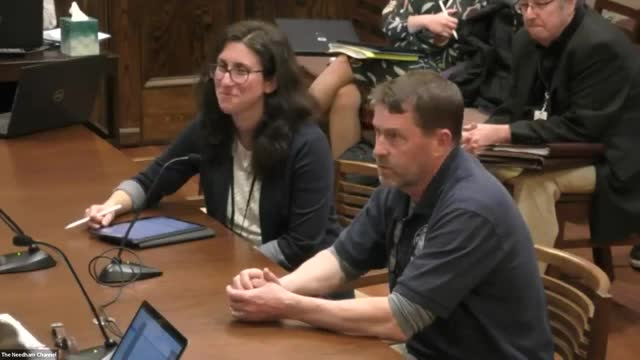Needham joins regional talks as municipal solid‑waste contract nears 2028 expiration; recycling and food‑waste programs face market pressure
Get AI-powered insights, summaries, and transcripts
Subscribe
Summary
Needham public‑works officials said March 11 that the town and a regional consortium are preparing to negotiate replacement municipal solid‑waste disposal contracts before a June 2028 expiration; preliminary market checks indicate disposal fees could rise substantially and recycling markets remain volatile.
Public Works presented an update March 11 on municipal solid‑waste disposal procurement and recycling markets as the town prepares for a contract renewal window. Needham is part of a regional consortium of more than 30 communities that negotiated a long‑term waste‑to‑energy contract roughly a decade ago. That agreement expires in June 2028 and consortium members have begun exploratory negotiations on new contracts and procurement strategy.
Key points from staff
- Contract timeline and negotiating group: The consortium is forming a smaller negotiation subcommittee and has been evaluating legal representation to support a multi‑town procurement. Staff said earlier negotiations delivered a substantially lower tipping fee at the time when communities consolidated purchasing and the vendor was motivated to retain customers.
- Market signals and price estimates: Two neighboring communities that recently sought proposals saw pricing in the range of about $100 per ton in some bids — a roughly 25% increase over several consortium communities’ current cost. Staff cautioned these were early signals and that pricing varies by contract term, geographic options (local waste‑to‑energy vs. rail export) and vendor portfolios.
- Disposal pathways: Staff discussed the industry context, including aging New England disposal assets, limited landfill space, and the practice of rail‑shipping construction and demolition debris to out‑of‑state landfills. Staff said keeping MSW in local waste‑to‑energy facilities is preferable to long‑distance export when feasible.
- Recycling and food‑waste programs: Recycling commodities remain variable; paper and cardboard prices have weakened and mixed recycling has turned to a cost in recent months. The town’s food‑waste pick‑up program has an up‑front per‑pickup cost but staff said scaling volumes can lower per‑ton costs and improve economics compared with increasing MSW tipping costs.
Next steps
The regional negotiating subcommittee will evaluate vendor proposals, decide whether to pursue a joint contract, select legal counsel and consider contract length options. Staff said the consortium will weigh climate and local disposal priorities against cost and reliability. The board asked for continued updates and cautioned that service changes or expenses will affect the RTS operating budget.
